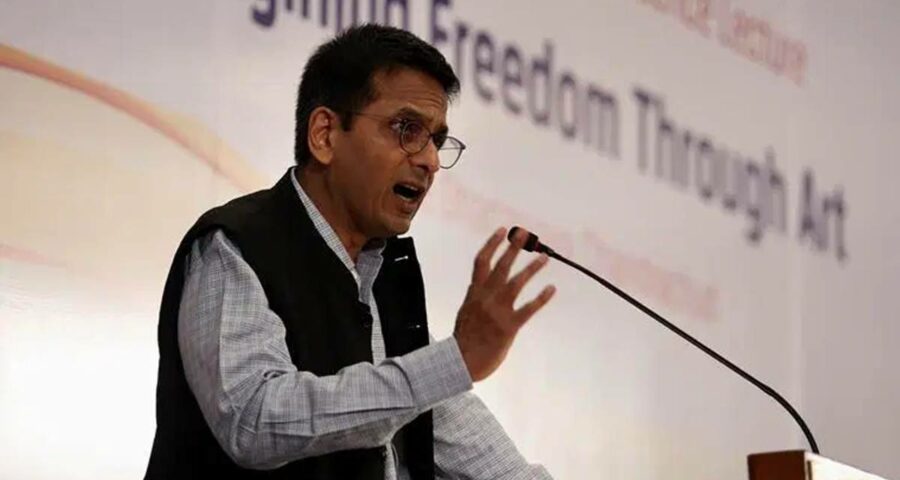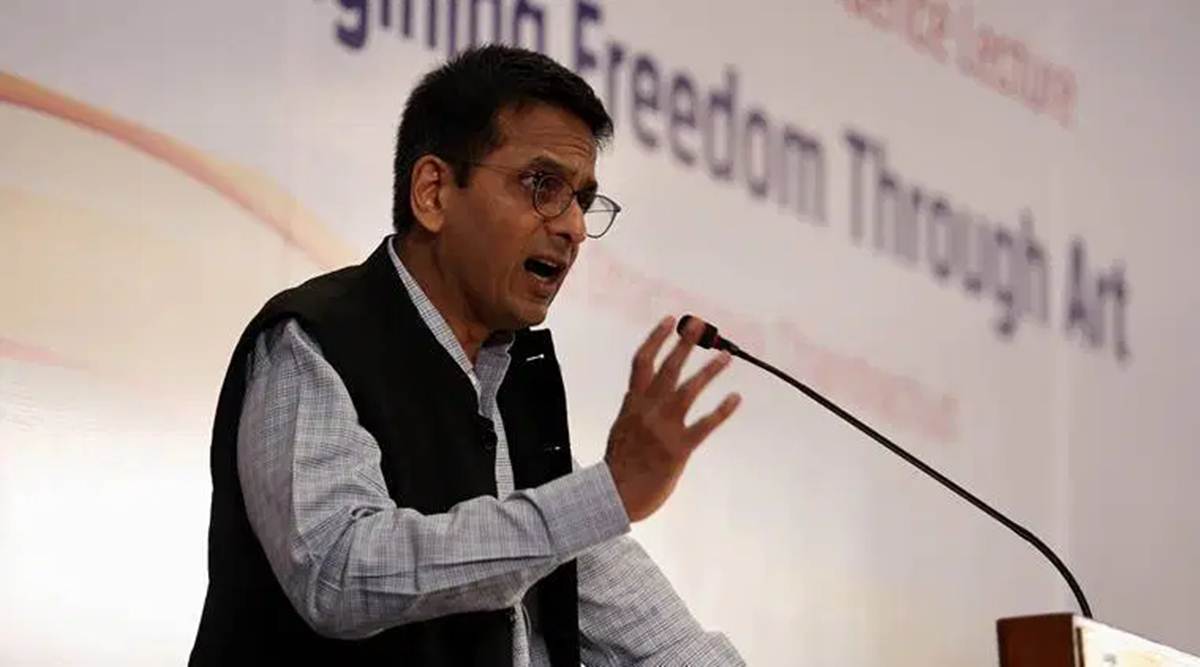Supreme Court judge DY Chandrachud asserted that majoritarian tendencies must be questioned against the background of "our constitutive promise".
Supreme Court judge DY Chandrachud said on Saturday that irrespective of the electoral legitimacy of the government, the Constitution is the North Star against which the conformity of every State action or inaction would have to be judged.
He also asserted that majoritarian tendencies must be questioned against the background of “our constitutive promise”.
“Any semblance of authoritarianism, clampdown on civil liberties, sexism, casteism, otherization on account of religion or region is upsetting a sacred promise that was made to our ancestors who accepted India as their constitutional republic,” Justice Chandrachud said.
He was speaking on the topic Students as the Constitution’s Vanguards at a programme organised by Shikshan Prasarak Mandali (SPM), a Maharashtra-based organisation that works in the field of education, on the 101st birth anniversary of his father Justice Y V Chandrachud, who was the longest-serving Chief Justice of India.
India would be well into the 71st year of the constitutional republic and it is understandable that many may, on occasion, feel that country’s democracy is no longer new and the need to study constitutional history and engage with its framework isn’t as worthwhile, he said.
“However, it is important to recognise that in times of peace or crisis, irrespective of the electoral legitimacy of the government, the Constitution is the North Star against which the conformity of every state action or inaction would have to be judged,” he said.
He said that India as a nation was united with a promise of certain commitments and entitlements to each and every citizen like religious freedom, equality between persons irrespective of sex, caste or religion, the fundamental freedom of speech and movement- without undue state interference – and an enduring right to life and personal liberty.
“Majoritarian tendencies, whenever and however they arise, must be questioned against the background of our constitutive promise,” he said.
Justice Chandrachud remembered Dr. Bhimrao Ambedkar and said that before mounting a ferocious battle against casteism, patriarchy and oppressive Hindu practices, his first struggle was gaining access to education.
“As a person hailing from the Mahar caste, an untouchable dalit caste, Babasaheb significantly struggled in gaining access to even primary education. His foremost memories of his schooling are of humiliation and segregation where he had to attend his classes while sitting outside the classroom, and ensuring that he does not touch the water or the notebooks that belonged to the upper caste students,” he said while addressing the students of education institutes run by SPM.
Justice Chandrachud said that Ambedkar eventually went on to hold 26 degrees and titles, becoming one of the most highly educated Indians of his generation and his education wasn’t just a vehicle for his self-advancement but left its imprints in the prescience, nuance and transformative potential of the Indian Constitution.
He added that just like Ambedkar, several revolutionaries in India and the world like Savitribai Phule, Jyotiba Phule, Nelson Mandela and even Malala Yousafzai heralded their emancipatory movements through an initial and, in that time and circumstance, a radical quest for education.
“These stories are useful reminders that the privilege of education we have today, are fruits of the boldest struggles and represent the dreams of our ancestors. The mantle is only passed forward, as every generation is entrusted with the task of bettering our society,” he said.
Justice Chandrachud said that he firmly believes that students can play an instrumental role in heralding progressive politics and cultures by using their formative years to question existing systems and hierarchies.
While remembering the roots of students movements in India and their contribution to India’s freedom struggle since the formation of the Academic Association in 1828, Justice Chandrachud said, “this brave pursuit of justice by students was not just against the colonial rule, but against future injustice as well, including the Emergency in 1975 when a democratically elected government had curtailed several civil liberties and muzzled free speech, offering a justification of a supposed internal disturbance.”
He said that the Constitution, besides other rights, ensures civil and political liberties such as the right to vote, right to substantive equality, right to life, liberty and fundamental freedoms of speech and expression were explicitly guaranteed as “Fundamental Rights” that were available to all citizens, and some to even non-citizens.
He said that any violation of these fundamental rights could be argued before a high court or the Supreme Court, and a meaningful remedy could be secured.
Supreme Court judge Justice U U Lalit, whose father senior advocate Umesh Lalit had worked with Justice YV Chandrachud, also highlighted the contribution of former chief justice of India and said his over dozen constitution bench judgements are the lighthouse that shows the path to future generations.
Hailing Justice YV Chandrachud as his hero, Justice Lalit said the he did not just have legal training but also had enormous knowledge for dealing with the social problems of the country and his landmark judgements are reflective of that vision.
Justice YV Chandrachud was appointed Chief Justice of India on February 22, 1978 and superannuated on July 11, 1985.
Source: Read Full Article


